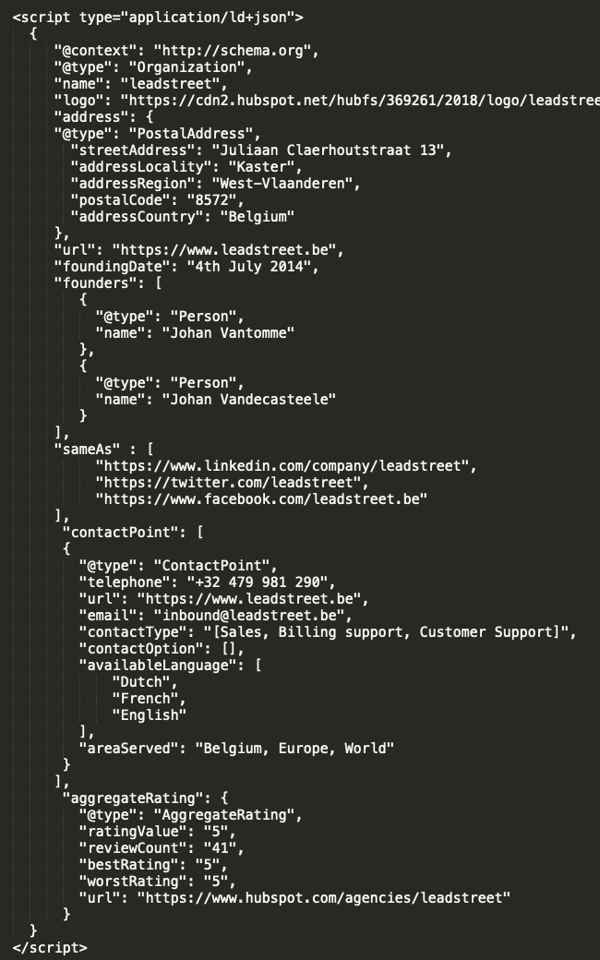Scoring high in Google's search results is not only a matter of keywords and excellent content. The way you present that content to Google is an indispensable part of a smart SEO strategy. By working with structured data, you increase the chance that your content will be found and read.
What is structured data?
Structured data is code specifically designed to tell search engines what specific content on your website has to offer. In other words, the code provides contextual information that helps Google determine in a standardized way whether your content offers a relevant answer to a specific search query.
Does structured data impact SEO?
Although structured data is not a ranking factor for Google, indirectly, they have a significant impact on the chances of your content being found.
After all, Google rewards good use of structured data in various ways; for example, in rich results, rich cards and featured snippets in search results.

You can read how Google wants to show more and more refined and personal search results today here.
Think of recipes displayed in a separate block, FAQs that give a to-the-point answer between the search results or how many stars customers awarded in their reviews of your webshop. The possibilities of the types of structured data supported by Google are enormous when used correctly:
- How to's provide an answer to a concrete question, by guiding the visitor in a number of steps towards a solution.
- FAQ's that provide short question-and-answer solutions are shown between the search results.
- The practical details of local businesses displayed in an interactive result, including data such as opening hours, customer reviews or route instructions.
- Review snippets with additional information.
- Q&A's that get an eye-catching preview in the search results.
- Product information enriched with data such as price, availability and customer scores.
- A so-called host carousel, on which a content offer (such as recipes) is preshown from the website in an informative and visually distinctive carousel.
- Events that are shown in an interactive rich results framework.
- Featured articles that displayed with an image above the other search results.
- Books that provide basic information from the search results and can be purchased immediately.
How do I add structured data?
Structured data is code created in a specific, standardized format - in this case, schema.org, a joint project of the major search engines. Leadstreet has a lot of experience with structured data at international clients.
We use JSON-LD (JavaScript Object Notation for Linked Data), but structured data can be developed in different ways in HTML:
Fortunately, you are not alone in adding structured data: Google provides a handy helper for creating markup code. Do you want to check if the code you have created works correctly? Google has a solution for that, too, with a free test tool for structured data with which you can check in no time whether your code was written correctly.
A detailed example of what the code can look like below:

TIP: Bing also offers a lot of information about how it deals with structured data. Please take advantage of it!
HubSpot modules for structured data: the quickest way to success
If you want to get started with structured data yourself, but you haven't eaten a cheese of code, you can contact leadstreet for a dozen HubSpot modules with which you can add structured data to:
- Blog posts
- Organizational structure
- FAQs
- How-to's
- Local enterprises
- Events
- Persons
- Books
- Video
- Product pages
In addition to structured data modules, we have also developed other HubSpot modules. Any questions? Give us a call:

Johan Vantomme
Managing partner leadstreet ✪ Diamond HubSpot Partner ✪ Top 50 HubSpot Agency worldwide




